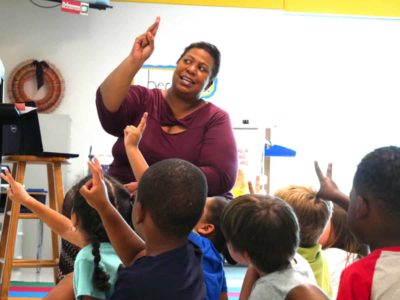

In early January 1811, upwards of 500 enslaved men took up arms and marched down the east bank of the Mississippi River, burning plantation buildings on their way to New Orleans in a quest for freedom. Federal troops and a planters’ militia confronted them in what is now an outer suburb, put down the insurgency brutally and mounted the heads of rebels on pikes to warn enslaved Black people against further rebellion.
Even though this episode took place along the river road several miles south of the small town where I was born, I didn’t really learn about it until the publication in 2011 of American Uprising: The Untold Story of America’s Largest Slave Revolt by Daniel Rasmussen. Similarly, many North Carolinians didn’t learn the turning-point story of a white supremacists’ coup d’etat until the state’s 1898 Wilmington Race Riot Commission released a 500-page research report in 2006, or last year in David Zucchino’s riveting Wilmington’s Lie.
North Carolina took a modest, yet significant, step forward with the recent adoption of revised social studies standards that call for teaching the history of injustices and social conflicts, racism, and sexism, in American democracy. And yet, the 7 to 5 vote by which State Board of Education voted to approve the standards serves as a reminder of the contentiousness and uncertainty surrounding the teaching of civics and history in a moment so divisive that many citizens, without credible evidence, refuse to acknowledge the result of the 2020 presidential election.
In an effort to stimulate “excellent history and civic education from kindergarten through 12th grade,” the Educating for American Democracy Initiative issued last week a report and roadmap as guidance to state and local policymakers as well as educators. Funded by the National Endowment for the Humanities and the U.S. Department of Education, the initiative report lists 300 contributors, historians, political scientists, and educators across ideological lines.
“Fraught though the terrain is, America urgently needs a shared, national conversation about what is most important to teach in American history and civics, how to teach it, and above all, why,” says the report. “We believe there is a way forward if we can build a national conversation that is at once ideologically pluralist, grounded in classroom experience, and accessible both to teachers of all backgrounds and to diverse student learners.”
The Educating for American Democracy authors do not indulge in the conventional repetition of how many students cannot correctly answer names-and-dates test questions. But in saying that “yesterday’s civics cannot suffice for today’s world,” they do confront the role of public education in addressing a fractious democracy.
“Students must be prepared today for a world of hyper-partisanship, of weak civic associations, and of social media instead of printed metropolitan daily newspapers,” they write. “Americans of all ages need better skills with evidence and digital literacy, stronger civic virtues for deliberation and tolerance of divergent views…The threat we face now is more internal than external; it is our own civic dysfunction.”
The initiative report calls for a ground-up strategy rather than laws and policy handed down from political authorities. Still, the initiative cites needs that North Carolina legislators could address.
One is in-service professional development to produce a corps of teachers with the confidence and skill to guide students through the paradoxes and contradictions, glories and injustices, in U.S. history. The report sets a goal of one million such teachers across the nation.
A vital need is time — “more, certainly, than the 2.8 hours per week of social studies that is typical in third grade and more than the one year of U.S. history and one semester of U.S. government that is most commonly required in high schools,” says the report. In North Carolina, unfortunately, time for two semester-long high school history courses became collateral damage when the legislature mandated teaching of personal finance and economics.
Rather than drive controversial topics out of the classroom, the education for democracy initiative would have schools embrace the American tradition of robust debate. The roadmap poses age-appropriate questions to frame discussions and debate with the purpose of inculcating what it calls the virtues and duties of “civil disagreement and civic friendship.”
Together, says the report, these virtues should remind “us that we should all regard one another as fellow Americans capable of sharing ideals, principles, and constitutional forms of self-government even as we vigorously debate our philosophical or policy differences.” And, it could be added, even as Americans belatedly learn more about and ponder the contemporary implications of the inglorious episodes along the Mississippi River road in 1811 and in Wilmington in 1898.




